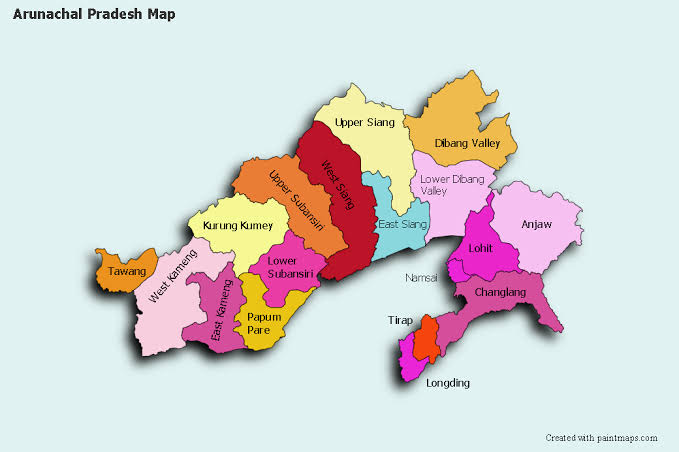
For the third time in six years. China has announced Chinese names for geographical features in Arunachal Pradesh. Reiterating its claim to the entire Indian state. China is making Southern Tibet in this region.
In its latest attempt to lay claim to areas inside the Indian territory. The Chinese government on Sunday announced it would “standardize” the names of 11 places in Arunachal Pradesh. Releasing a list of the 11 places along with a map that shows parts of Arunachal Pradesh instead of inside the southern Tibetan region, that China refers to as Zangnan. The Chinese Ministry of Civil Affairs even included a town close to the Arunachal Pradesh capital of Itanagar.
The areas that are named includes two residential areas, five mountain peaks and two rivers. The document included their coordinates, category of place names and subordinate administrative districts. This is the third batch of names in Chinese characters, Tibetan and pinyin announced by China.
The first batch of six names was release in November 2017, just a few days after the visit of Tibetan spiritual leader Dalai Lama to Arunachal. The second one was release in December 2021, just two days before China’s new land border law came into effect

India Rejected all the reports
India’s foreign ministry rejected the move. “We have seen such reports. This is not the first time China has made such an attempt,” Indian foreign ministry spokesperson Arindam Bagchi said on Twitter. “Arunachal Pradesh is, has been and will always be an integral and inalienable part of India.”
Also read: 30 percent of spouses track their partner via Apple tech
China and India fought a war along parts of their poorly demarcated 3,800km (2,360-mile) frontier in 1962. Both parties clashes in mountainous regions in recent years have seriously strained relations between the nuclear-armed neighbors.
At least 24 soldiers, including 20 Indians, were killed when the two sides clashed in the Ladakh region, on the western part of their border, in 2020 but the situation calmed down after diplomatic and military talks.
In the aftermath of the 2020 clash, India banned hundreds of mobile applications of Chinese origin, including the popular social media platform TikTok.
